Course in Buddhist Reasoning and Debate (2017-19)
Teachings on The Course in Buddhist Reasoning and Debate: An Asian Approach to Analytical Thinking Drawn from Indian and Tibetan Sources by Daniel Perdue given at Sravasti Abbey.
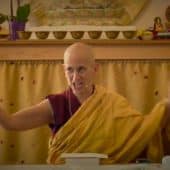
Why study debate?
Introduction to the text with an explanation of why we would want to study debate.
View Post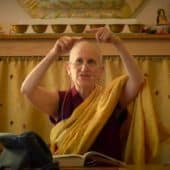
Motivation to practice
How mindfulness of death and impermanence provides motivation to practice the Dharma, and why we need reasoning and logic as part of our spiritual practice.
View Post
Syllogisms
Venerable Thubten Tarpa elaborates on the brief debate from the previous teaching, providing insight into the form of syllogisms and how they lead to wisdom.
View Post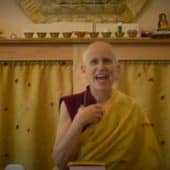
The three higher trainings
Teaching Chapter Three, focusing on the three higher trainings of ethical conduct, meditative stabilization and wisdom.
View Post
Practicing the Dharma
Finishing Chapter Three, with advice for how to incorporate the Buddha's teachings into our lives skillfully, without contradiction.
View Post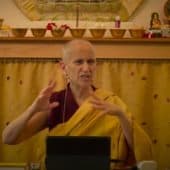
The comparison of phenomena
Beginning chapter four by teaching on how to use logic and reasoning to understand how categories of phenomena relate to each other.
View Post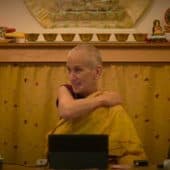
Four possibilities
Continuing Chapter Four by engaging the audience in identifying the 'four possibilities' when comparing different phenomena
View Post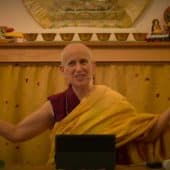
Review of four possibilities
Reviewing the debate on the four possibilities and the four possibilities without anything that is neither in debate
View Post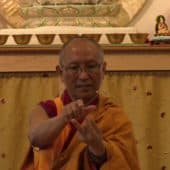
Syllogisms
Geshe Dadul Namgyal explains how syllogisms are used in Buddhist logic and debate, and answers general questions on Buddhist philosophy.
View Post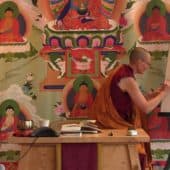
Buddhist ontology
Venerable Tenzin Tsepal gives a brief overview of Buddhist ontology and walks the class through completion of Exercise 4.4
View Post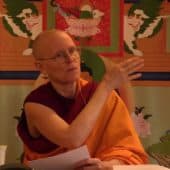
Mutually inclusive phenomena
Venerable Thubten Tarpa teaches on mutually inclusive phenomena and reviews mutually exclusive phenomena
View Post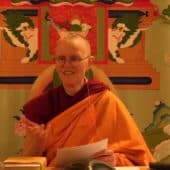
Tips for practice
Venerable Thubten Tarpa covers advice for engaging in the comparison of phenomena, as per the methods taught in previous weeks.
View Post